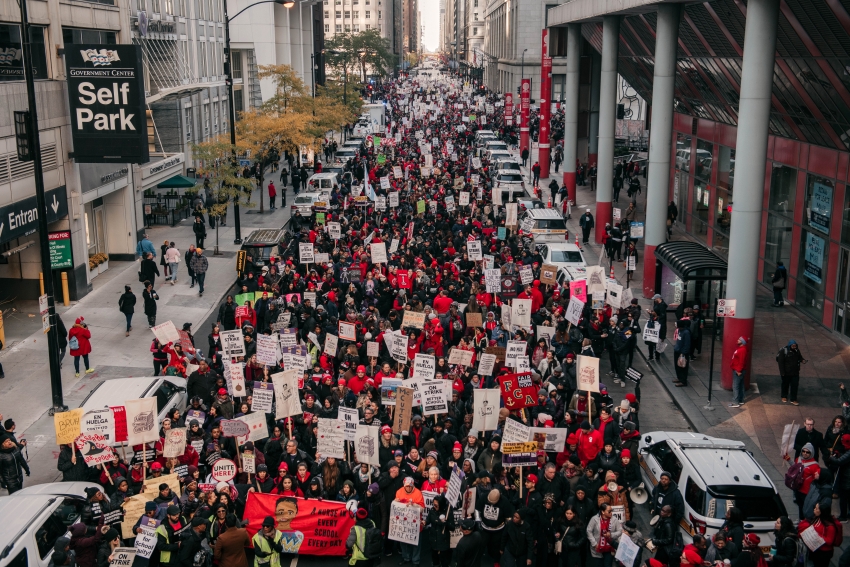
Chicago teachers made history through their strike. But their fight isn’t over. (Photo by Scott Heins/Getty Images)

Share
After decades of declining strike activity, data analyzed by the Economic Policy Institute (EPI) from the Bureau of Labor Statistics (BLS) show that there was a substantial upsurge in 2018 and 2019, with 485,000 workers involved in major work stoppages in 2018 and 425,500 workers involved in major stoppages in 2019. This is the largest two-year average in 35 years.
In 2017, only 25,300 workers were involved in work stoppages. Work stoppages are primarily composed of striking workers.
“Even though we are 10 years into an economic recovery and the unemployment rate is under 4%, working people are still not seeing the kinds of robust wage growth that those at the top have seen for decades,” said EPI Policy Director Heidi Shierholz. “The increase in strike numbers shows that workers understand that joining together in collective action remains an effective way to raise wages and benefits, and improve working conditions.”
In 2019, there were 10 work stoppages involving at least 20,000 workers, the largest number since 1993. The largest strike involved nearly 50,000 workers walking out of General Motors factories across the country with the goal of preserving job security, improving wages, and retaining health care benefits.
30,000 workers also went on strike in 2019 at Stop & Shop, a New England-based grocery chain, over a drastic increase in health care costs. The 11-day strike concluded with the United Food and Commercial workers and Stop & Shop agreeing to a contract that preserved health care benefits, increased wages, and maintained time-and-a-half pay on Sunday for current employees.
“The resurgence in recent strike activity has occurred despite current policy that makes it difficult for many workers to effectively engage in their fundamental right to strike,” said EPI Policy Associate Margaret Poydock. “Corporate influence has eroded labor law and allowed worker protections to stagnate. We need fundamental labor law reforms like the PRO Act in order to bring worker protections into the 21st century.”
The U.S. House of Representatives recently passed the Protecting the Right to Organize (PRO) Act, which would expand the scope of lawful strikes and prohibit employers from permanently replacing striking workers.

